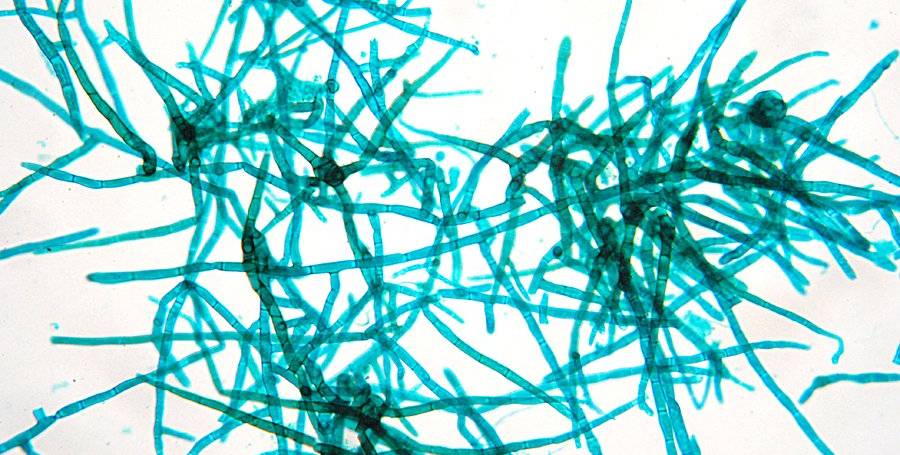 In 2017, a randomized, placebo-controlled study, published in the World Journal of Gastrointestinal Pathophysiology, looked at healthy men and women with an average age of 21 years, 13 people in the placebo group and 15 in a spore-produced probiotic group. The researchers found that the spores-based probiotic formulation helped support intestinal health, as demonstrated by its influence on endotoxin levels in the blood. The probiotic supplementation was associated with a 42% decrease in endotoxins (12.9% vs 3.5% (vs 6.1% and 2.6%, P = 0.011 ), a 24% reduction in triglycerides (21.2% vs 28% (vs 13.8% and 1.2%, P 0.004) in the postprandial period and a 36% increase in endotoxins (10.3% vs 3.4%, vs 15.4% and 4.1%, P.
In 2017, a randomized, placebo-controlled study, published in the World Journal of Gastrointestinal Pathophysiology, looked at healthy men and women with an average age of 21 years, 13 people in the placebo group and 15 in a spore-produced probiotic group. The researchers found that the spores-based probiotic formulation helped support intestinal health, as demonstrated by its influence on endotoxin levels in the blood. The probiotic supplementation was associated with a 42% decrease in endotoxins (12.9% vs 3.5% (vs 6.1% and 2.6%, P = 0.011 ), a 24% reduction in triglycerides (21.2% vs 28% (vs 13.8% and 1.2%, P 0.004) in the postprandial period and a 36% increase in endotoxins (10.3% vs 3.4%, vs 15.4% and 4.1%, P.
According to the literature, the greatest advantage of spore-based probiotics is that they consist of endosomes that are resistant to acid pH (stomach acid), “stable at room temperature” and release larger amounts of viable bacteria into the small intestine than conventional probiotic dietary supplements [11, 12]. In order to address the well-known problem of adequate probiotic administration, we have used probiotics based on spores in this study. Spore-forming probiotics reach deep into the gut microbiome, and their benefits are numerous.
While most conventional probiotics are similar to those in the human GI tract, such as lactobacilli and bifidobacteria, some probiotically derived Bacillus species provide dormant spores. Spores-forming probiotic bacteria are soil-based microorganisms that form spores and occur in dirt and vegetation. These bacteria are receiving increasing scientific and commercial attention due to their therapeutic immune boosting qualities.
The most commonly used probiotic spores of the Lactobacillus type are dormant life forms that are supposed to colonize the small intestine. Soil organisms (SBOs) are a form of bacteria designed to mimic exposure to beneficial microbes in our environment and pre-agricultural food.
Soil-based bacteria are named after the spores and their hard outer shell, which help them survive in harsh environments such as soil. When no protection from the environment is necessary, they shed their outer shell and behave like all other bacteria.
For example, a strain of the spore-based probiotic Bacillus coagulan was investigated for its positive effects on irritable bowel syndrome (IBS) and Crohn’s disease. Megasporebiotic, a probiotic mixture of 5% Bacillus spores, has also been shown to be healthy in terms of intestinal barrier and immune function.
positive effects on irritable bowel syndrome (IBS) and Crohn’s disease. Megasporebiotic, a probiotic mixture of 5% Bacillus spores, has also been shown to be healthy in terms of intestinal barrier and immune function.
A strain of the spore-based probiotic Bacillus coagulans produces Lactate, which has been shown to protect the gut and strengthen the “immune system” against viruses. Another, Lactobacillus bifidobacterium saccharomyces bourladii, has been well studied and demonstrates several benefits for the digestive system when used with some strains of probiotics supplements. When used as a single strain, certain nutrients must be used instead of other strains in order to improve the probiotic quality, increase its use and extend its shelf life.
Other conditions that improve the use of probiotics include acid reflux, constipation, colic in babies, inflammatory bowel disease, irritable bowel syndrome, ulcerative colitis, H. pylori, sepsis, acne, allergies and asthma.
Taking probiotics has been linked to improved digestive health, among other things. Probiotics can be found in everyday foods and can also be obtained as a dietary supplement. We will look at the three main types of probiotics and the benefits and challenges of each one.
Probiotics work by changing the composition of the gut bacteria and the metabolic activity of existing bacteria. The lactic acid produced by probiotics contains known bacterial strains such as Bifidobacterium and Lactobacillus.
Many people use probiotic supplements to improve their gut health by adding probiotic strains into their digestive tract. The assumption is that adding good bacteria to a dietary supplement will replace bad, opportunistic bacteria. As we will discuss later in this article, restoring a healthy microbiome is not as easy as swallowing a pill.
In conclusion, spore-based probiotics and healthy gut bacteria can help improve your health in various ways in general. Filling your intestinal walls with bacteria you already know, spore-based probiocits are the best choices. If the room is filled with a mixture of good and bad bacteria, healthy probiotics can help shift the balance for the better by taking up most of the space.
Give this great spore based probiotic with prebiotics to feed friendly bacteria a try today you can only improve your health with zero side effects:
Cited Sources
- https://www.sciencedirect.com/science/article/pii/S2590156719300350 0
- https://atlasbiomed.com/blog/soil-based-probiotics/ 1
- https://advancedfunctionalmedicine.com.au/soil-based-probiotics/ 2
- https://www.researchednutritionals.com/everything-you-wanted-to-know-about-probiotics/ 3
- https://experiencelife.lifetime.life/article/everything-you-need-to-know-about-probiotics/ 4
- https://blog.designsforhealth.com/node/1153 5
- https://www.lucymailing.com/the-complete-guide-to-soil-based-probiotics/ 6
- https://michaelkummer.com/health/soil-based-probiotics/ 7
- https://premierifm.com/blog_files/spore-probiotics-and-gut-microbiome.html 8
- https://drchristinemaren.com/probiotics-how-to-choose-the-right-one-and-best-probiotic/ 9
- https://www.natren.com/pages/why-spore-based-probiotics-are-bad 10
- https://edu.emersonecologics.com/2019/08/16/benefits-of-spore-probiotics/ 11
- https://cleanplates.com/nutrition/types-of-probiotics/ 12

Leave a Reply